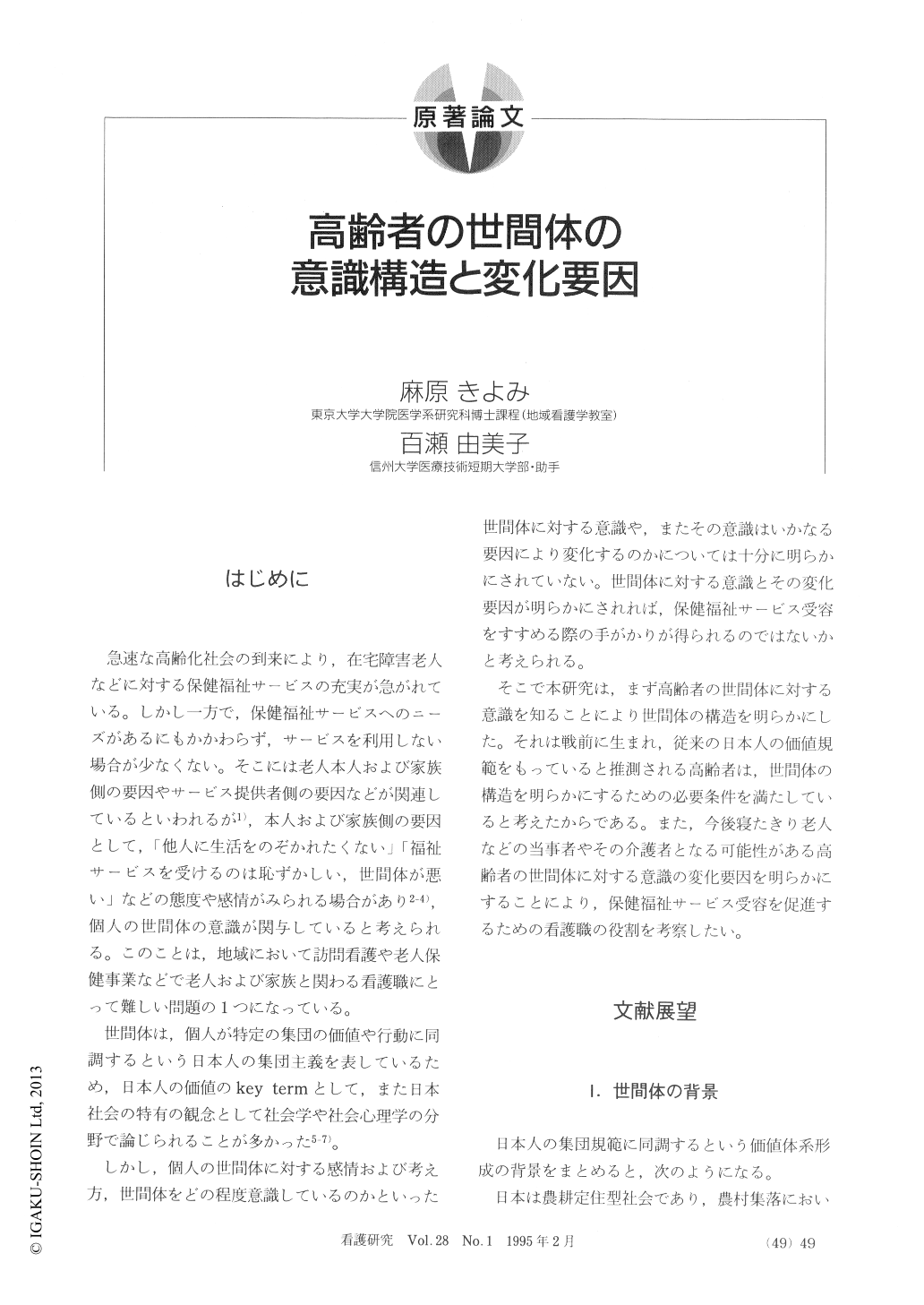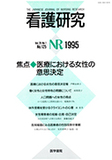Japanese
English
- 有料閲覧
- Abstract 文献概要
- 1ページ目 Look Inside
- サイト内被引用 Cited by
はじめに
急速な高齢化社会の到来により,在宅障害老人などに対する保健福祉サービスの充実が急がれている。しかし一方で,保健福祉サービスへのニーズがあるにもかかわらず,サービスを利用しない場合が少なくない。そこには老人本人および家族側の要因やサービス提供者側の要因などが関連しているといわれるが1),本人および家族側の要因として,「他人に生活をのぞかれたくない」「福祉サービスを受けるのは恥ずかしい,世間体が悪い」などの態度や感情がみられる場合があり2-4),個人の世間体の意識が関与していると考えられる。このことは,地域において訪問看護や老人保健事業などで老人および家族と関わる看護職にとって難しい問題の1つになっている。
世間体は,個人が特定の集団の価値や行動に同調するという日本人の集団主義を表しているため,日本人の価値のkey termとして,また日本社会の特有の観念として社会学や社会心理学の分野で論じられることが多かった5-7)。
The purpose of this study was to clarify the structure of consciousness for “Seken-tei” and its changing factors. The subjects were twenty-two old persons ranged in age from sixty-one to eighty. They responded to a semistructured interview. All responses were coded and categorized.
The results were as follows :
(1) “Seken-tei” was self-consciousness of the norms whether one's behavior or action was based upon the norms of society or not. The characteristics of “Seken-tei” based on this investigation were ; the norms of society were customs of society, a sense of family, obligation and moral norms ; “Seken-tei” was a principle of solidarity and maintenance of public order, and a sense of solidarity was brought up through the plays or events of children in a farm village ; some persons who deviated from the norms suffered the social sanctions by others, so they feeled shame and discrimination, the other hand, other persons who conformed to the norms had restricted and suppressed feelings, thus most of the subjects had negative feelings.

Copyright © 1995, Igaku-Shoin Ltd. All rights reserved.


